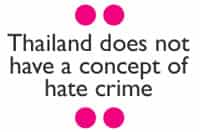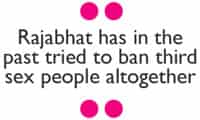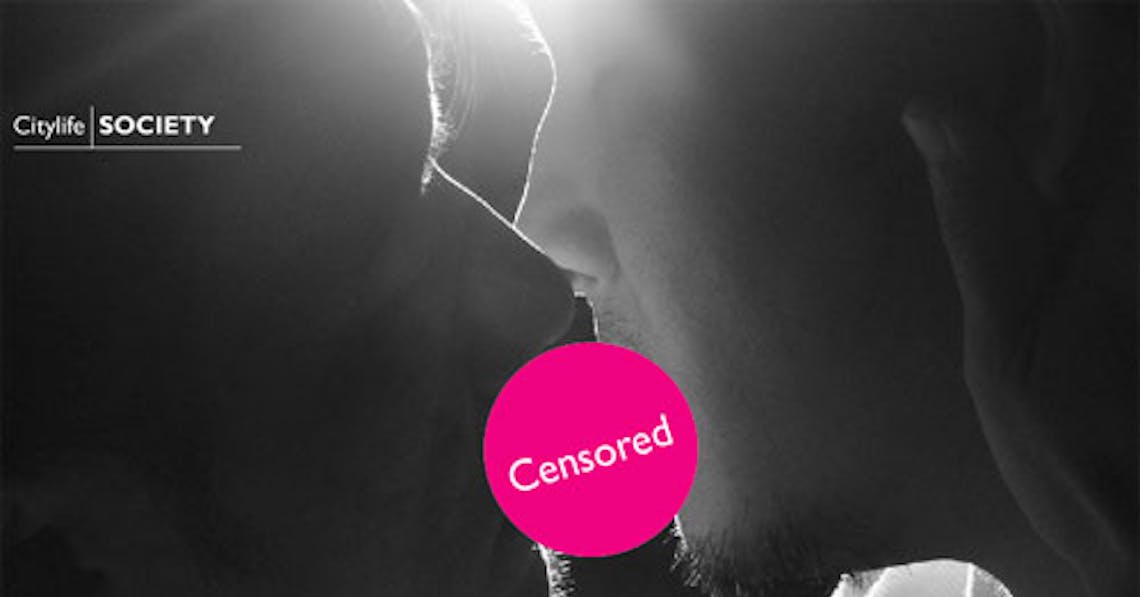In the west we tend to treat sexual orientation with a more than meets the eye attitude, believing for the most part that there is a fuzzy line separating the straight and the gay. Research by various sexologists since the fifties suggests that latent sexual preferences are closeted in favour of being developed, due to the fear of familial and public shame, religious scruples, guilt, social embarrassment, etc.
Though in Thailand we see this line breached, daily, whether in the school, in the pub or at the check-out in the supermarket, we are virtually assured to meet openly, un-closeted, homosexual men. We may also quite regularly see tom (the more masculine woman in a lesbian couple, derived from ‘tomboy’) and their dee (the more feminine, taken from ‘lady’) or meet girls with strangely baritone voices who seem to enjoy a liberation that they would not have in the west. They are neither laughed at nor bullied or pointed at; bestowed on them, we imagine, is an unconditional national tolerance, while surrounding them is an open-mindedness that embraces the aura of Thais and Thailand . . . ce qui cera cera.

So when a Thai journalist states in one of his articles for The Nation newspaper not many months ago, “tolerance for gays is just a myth” it kind of messes with the equanimity, the continuity, of life in our pleasant bubble. Paisarn Likhitpreechakul, a writer for a gay column in The Nation and also a gay activist, is both voluble and caustic concerning the other side of the coin, the (in)tolerance of sexual minorities in Thailand, or LGBT (Lesbian, Gay, Bi-, Trans-).
“Most Thais also like to believe in such a feel good story, as well as spin it to foreigners. To say anything to the contrary will cause a loss of face,” writes Paisarn in one article, adding that “rationale based on visibility” leads to a warped interpretation of the Thai cultural ethos. As evidence of his convictions he invokes two vicious hate crimes, one where a bisexual woman was burned alive in 2006 and another in 2007 where a lesbian was raped, murdered and burned. These kinds of horrific stories do not usually penetrate the airwaves of the foreign diaspora or reach international media.
In his various articles on “deep-seated homophobia” in Thailand he attacks the political system for its negligence concerning human rights for sexual minorities. He also expresses concerns about “self-proclaimed ‘Buddhist’ individuals who incorrectly use the Buddhist concept of Karma to justify their homophobia” creating a hypocrisy that propagates sexual discrimination _ in a religion that assiduously engenders equal rights.

RetroAction
On December 18th 2008 the United Nations General Assembly met to hear a statement that affirmed the human rights principle of universality and non-discrimination regardless of sexual orientation and gender identity. The statement condemned all human rights violations based on sexuality. Thailand’s UN representative chose not to endorse the France-initiated statement. Neither did they sign the back-to-back opposing statement by Syria and 54 other countries. This wasn’t the first time Thailand has sat on the fence at the UN when statements on gender identity and antidiscrimination have been read. “A silent apathy,” says Paisarn, “rather than outright opposition _ very Thai-style in that regard,” he adds. The government, when rationalising their noncommittal attitude regarding these statements, has expressed concerns about harming ties with the Muslim world and perpetuating troubles in the deep south.
In an interview with Citylife Paisarn explained that the foreign ministry, after receiving a letter from the Human Rights Commission concerning the aforementioned statement, recently spoke with Prime Minister Abhisit Vejjajiva. It is believed that the next time a similar statement is read at the UN assembly, Thailand’s UN delegation will support the statement. “There is no official confirmation,” explained Paisarn, though he stated that an unnamed source had expressed confidence in this change of direction.
In early September a case that could be construed as “institutional homophobia” _ a term Paisarn has regularly ushered into his text _ made the headlines in Thailand and abroad. The Boxing Association of Thailand (ABAT) banned Thailand’s boxing silver medalist in the Athens Olympic Games, Worapoj Petchkhoon, for 3 months, for modelling in the gay magazine ‘Stage’. The photo, while suggestive, was not nude, however the boxer, who will now miss the SEA Games, was said to have “tarnished the reputation of national athletes.” “Predictable,” said Paisarn, who added, “if this were a straight magazine it wouldn’t have been a problem.”
Concerning social abuse against sexual minorities he said, “We have lots of cases of abuse,” though he explained that Thailand does not have a concept of hate crime. “The police would view a murder of a lesbian as a consequence of a cheating woman, not a hate crime. Most people would probably think it served her right.” He does concede that it is unusual to see Thai people openly bullying LGBTs but ascribes this to Thai people’s “non-confrontational nature”.
In schools he explains that although teachers may learn to live with diversity, the education system is still discriminative. At a meeting with the Ministry of Education recently, Chiang Mai University spokespeople talked of third sex students causing problems, stating that third sex dorms may have to be included on campus. Most universities do allow LGBT students to dress in their preferred genders at universities though not at graduation ceremonies or examinations, while no LGBTs can study in the Faculty of Education as it may lead to a “bad influence on children” and could make the unfortunate kids “imitate their teacher”. Rajabhat has in the past tried to ban third sex people altogether, trying to enforce a rugged stipulation that “sexual deviants” not be enrolled. This is hardly tolerance explains Paisarn. “They don’t want to see them, share with them, it’s segregation.” He suggests that most people think the inception of the ‘pink toilet’ in some schools and universities is also blatant segregation, not as the public think, an act of bureaucratic kindness towards the gay students. “The truth,” he exclaims, is that “Thai-style tolerance only applies when minorities stay in their place.” To “know your station” and committing yourself to that station is paramount in a culture where a hierarchy is discernable on every street.

RetroReasoning
The February 21st Gay Pride Parade this year never got off its dancing feet as red shirt protesters forced the parade to take down a stage and blocked it from going anywhere. The panoply of costumes and entertainment was deflowered, leaving the proud gay not so gay, the fun, the message, the good intentions, a non-starter. Pongthorn Chanlearn, Project Director at Mplus (a foundation promoting sexual rights and promoting health and human rights for LGBT) was the director of the parade. Notwithstanding the unfortunate incident in February, Pongthorn believes that most Thais are tolerant towards sexual minorities, he also believes the anti-gay protest was as much an attempt to be in the political limelight as it was a reflection on social intolerance. “Red shirts used us as a tool to present themselves, to dominate Chiang Mai, it was not just about the gay parade,” he told Citylife. The Gay Parade was also outrightly opposed by various government offices, including the Chiang Mai Cultural Council, who refused to comment on the gay issue when approached by Citylife.
Nevertheless Pongthorn believes the social perception of sexual minorities to be mainly positive though the perception of the law is negative. “Social perception accepts LGBT identity, mostly, not all the time,” explains Pongthorn, “it’s behaviour that is not accepted, you can be gay, but not always act gay, especially in certain positions,” mirroring Paisarn’s belief that society demands an almost Aristotelian view that everyone be in their right place. “You can be openly gay, but private life and public life are two very different things,” he stressed.
Pongthorn also disagreed with the pink toilet, believing the segregation to be bad for society and especially gays. “The schools may have had good intentions but it separates us from the rest of society and that is wrong,” he says. On a more positive note he believes that “everyone can be enlightened” and that Thailand needs more political strategies to promote human rights, not just for sexual minorities but for everyone. “Buddhist ideology should be respected, but this is not really the reality now,” he concluded, admitting that there is a “darker side” in society that is rarely discussed.
Nearing the end of a lengthy ‘phone conversation with the more critical Paisarn he says emphatically: “We are Thai, we are happy, we are one big happy family; this is how we think in Thailand, discrimination not only against gays but against Burmese or hill tribe or the poor, they are often just swept under the rug, some people have no concept of problems existing. Everything is fine, always fine, was fine and will be fine, there are no problems, we are all brothers and sisters. This is often the Thai attitude. If foreigners want to know anything about Thai society then they must look at the inside, not the outside _ which is what they mostly see. If they think gay men are accepted then look deeper inside society. Dig deep.”
